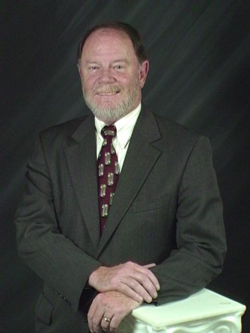ALBUQUERQUE, N.M. — Tom Sanders, president of the American Nuclear Society and manager of Global Nuclear Futures Program at Sandia National Laboratories, was recently appointed to the U.S. Department of Commerce’s Civil Nuclear Trade Advisory Committee (CINTAC).
CINTAC advises the Secretary of Commerce on issues related to programs that expand United States exports of civil nuclear technology and services in accordance with applicable U.S. regulations. It also provides advice from U.S. industry on how activities affect the U.S. civil nuclear industry’s competitiveness and ability to participate in the international market.
Sanders was nominated by former White House Chief of Staff and Senate Majority Leader Howard Baker, who co-chairs the American Council on Global Nuclear Competitiveness.
Sanders said CINTAC’s input could be crucial given that many countries around the world have notified the International Atomic Energy Agency (IAEA) that they intend to begin or expand their nuclear energy capabilities.
As president of the American Nuclear Society, Sanders advises CINTAC and assists in the removal of barriers associated with the export of U.S. nuclear goods and services while maintaining the U.S. commitment to proliferation prevention through requirements such as export controls.
“Export controls are a primary way for the U.S. to promote our cultural values about the peaceful use of nuclear technology including safety, security and proliferation resistance around the world,” Sanders said. “Most of today’s global market is dominated by foreign industries.”
Sanders added, “Many foreign companies are owned outright or heavily subsidized by their national governments who rightfully believe that their ability to export nuclear goods and services is critical to their financial, energy and national security. Such ownership and subsidies aren’t available to American companies.”
As leader of Sandia Labs’ Global Nuclear Futures, Sanders advocates the development of small, modular reactor concepts as a way for American companies to regain a competitive edge while maintaining the U.S. commitment to nuclear proliferation prevention. Small reactors could use an integrated design that incorporates intrinsic safeguards, security and safety features. Smaller and more secure reactors, he said, open the way for their possible exportation to developing countries that do not have the infrastructure to support large power sources.


